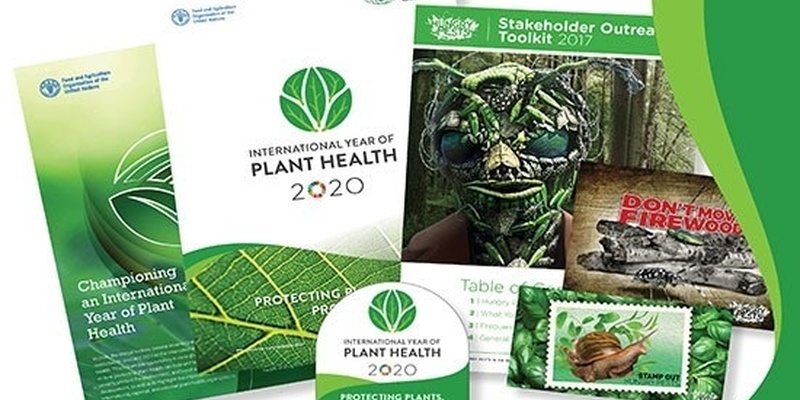USDA declares April 2021 Invasive Plant Pest and Disease Awareness Month during the IYPH
Posted on Wed, 07 Apr 2021, 07:29

Credit: USDA
Washington, 2 April 2021.The United States Department of Agriculture (USDA) has declared April 2021 as Invasive Plant Pest and Disease Awareness Month (IPPDAM). The declaration is a public outreach in line with the United Nations’ International Year of Plant Health (IYPH) that draws attention to the plight of invasive pests and the importance of maintaining plant health. Damaging pests threaten food crops, forests and natural resources and IPPDAM aims to raise public awareness about pest risks that can devastate agriculture, livelihoods and food security.
In partnership with Niagara Falls State Park and the North American Plant Protection Organization, USDA’s Animal and Plant Health Inspection Service (APHIS) will commemorate the IYPH with a special lighting of Niagara Falls. The falls located on the Canada-USA border will be illuminated green to emphasize the importance of protecting plant health across North America and around the world. You can view the celebration live on April 19-20 from 7-9 p.m. Eastern Standard Time (EST) for 15 minutes at the top of every hour.
“In this increasingly interconnected and mobile society, it has become even more important for the community to help us protect our agricultural and natural resources from the threat of hitchhiking invasive pests,” said U.S. Secretary of Agriculture, Mr Thomas J. Vilsack. “We need your help to stop them before they pose a significant risk. If you see a suspicious plant pest, contact your local USDA State Plant Health Director. You could save a forest, farm or vineyard by making a simple phone call.”
Human activities, such as international travel and trade, can contribute to spread plant pests and diseases worldwide. People can unintentionally introduce invasive plant pests easily as hitchhikers, hidden in plants, fruits, vegetables, soil, untreated wood, or attached to outdoor equipment, vehicles, sea containers and even postal mail. Damaging pests accidentally moved to new areas without natural enemies can wreak havoc to agricultural production and the natural environment. Without any natural predators and parasites to keep harmful plant pests in check, invasive pests can throw the domestic organisms ecosystem off balance.
Here’s what citizens in the U.S. and abroad can do to support the prevention of damaging pests to protect agriculture and natural resources:
• Familiarize yourself with the invasive pests already found in your area, as well as the tell-tale signs they leave on wild plants and agriculture.
• Look for signs of invasive plant pests and diseases and report them to your local Extension office or National Plant Protection Organization. When returning from international travel, declare all agricultural items, including soil, to Customs officials so they can ensure your items arrive pest-free.
• Don’t move untreated firewood. Buy certified, heat-treated firewood or responsibly gather wood where you burn it to avoid unintentionally spreading tree-killing beetles that hide inside untreated firewood.
• Be careful about where you source your plants and seeds. If you purchase them online, choose reputable domestic suppliers, or import them legally to ensure you don’t also accidentally import exotic pests and diseases.
• When in doubt, and before buying seeds or plants online from international vendors, you can contact your National Plant Protection Organization to find out what you need to safely import products legally and without pests.
Expand your reach. Join the conversation on Facebook and Twitter and visit the Hungry Pests website to learn more about invasive plant pests in the U.S. and what you can do to stop them.
More on USDA’s activities to promote the International Year of Plant Health at this link.

